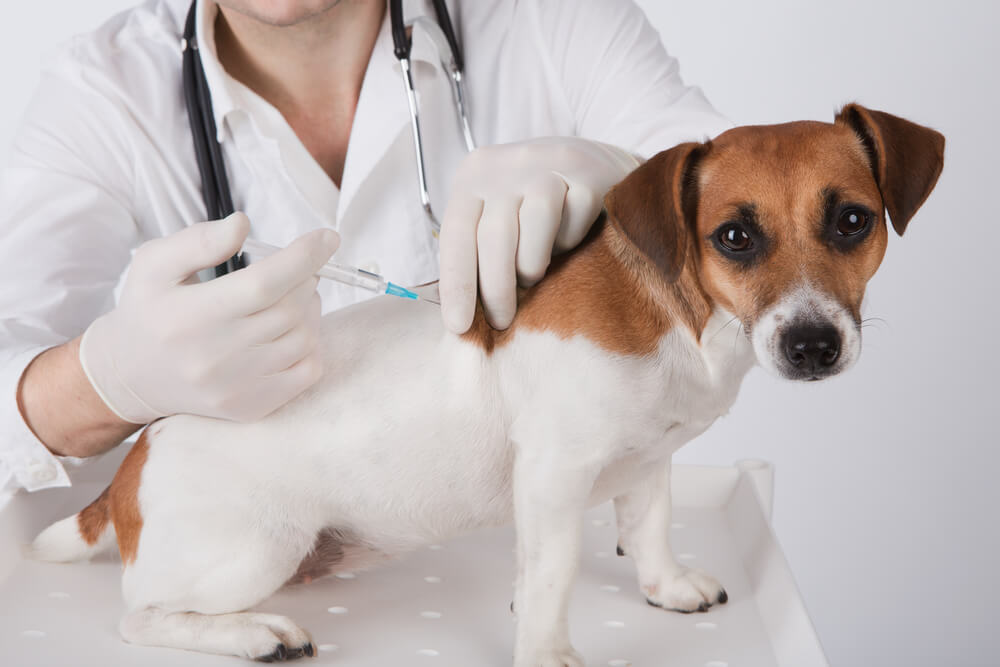Vaccines FAQs
As a new pet parent, you may have reservations about vaccinating your pet. By learning more about vaccinations and how they work, you can make wise decisions concerning the care of your kit or pup. The answers to the following FAQs from The Animal Hospital at Lake Brandt explain more about vaccines, the protection they offer, and why they’re important to the health of your pet.

What Are Vaccines?
Vaccinations are injections that protect your pets against infectious diseases that pose risks to their health. Vaccines stimulate your pet’s immune system to produce antibodies that fight against these diseases to safeguard his health. Some vaccines reduce symptoms of infectious animal diseases while others protect your pet against getting the disease altogether.
Why Are Vaccinations So Important?
Vaccinations safeguard your pet’s life by protecting him against diseases that are hard to treat. Vaccinating your pet against rabies can save his life. Vaccines can also stop the spread of contagious diseases to protect you, your pet, and other people and animals in the community where you live.
What Are “Core” and “Non-Core” Vaccinations?
Core vaccinations protect your pet against dangerous diseases that pose the greatest risk to your dog or cat’s health. Rabies and distemper are two diseases targeted by core vaccinations. Rabies can be fatal for your pet and is also quite contagious, putting people and other animals at risk.
Non-core vaccinations protect your pet against diseases that threaten his health due to his location or lifestyle. For example, if you live in an area where Lyme disease is prevalent and your pet loves romping in the woods where ticks abound, your Summerfield vet may recommend vaccinating your pet against this disease to keep him safe.
What Core Vaccinations Are Essential for My Pet’s Health?
Core vaccines for dogs include rabies, distemper, parvovirus, canine adenovirus, and parainfluenza. Core vaccines for cats include rabies, distemper, calicivirus, herpes, chlamydia, and feline leukemia. In order for vaccinations to be effective, your pet will need initial vaccines and follow-up boosters, according to the vaccination schedule set up by your Summerfield vet.
Should I Vaccinate My Puppy or Kitten?
Puppies and kittens are even more susceptible to diseases as their immune systems are still developing. Baby pets require a series of vaccines starting at the age of 8 weeks and given every 4 weeks until they’re 16 weeks of age. Your veterinary specialist can help you determine what vaccines are best for your baby kit or pup.
To schedule vaccinations for your dog or cat, contact The Animal Hospital at Lake Brandt at (336) 252-2208 today. We look forward to meeting all your veterinary care needs.

Why Choose Us?
-
We Are AAHA Accredited
-
We Are Dedicated to Provide the Finest Veterinary Care
-
We Provide Full Service in One Location
-
Long Term Supporters & Providers of the Local Rescue, Red Dog Farm

Providing your pet with any service they may need, big or small, since 2006. We are here for you.

Pawsitively Raving Reviews
-
“They go above and beyond for you and your furry family members.”
- Lisa T. -
“Dr. Jernigan first off, is the best vet ever. All the staff in the front and in the back. They give complete compassionate care to every animal. They are winners!”
- Kathleen C. -
“Staff, doctors, receptionists all first class. Nothing more important to me than my dogs, cats, and horses. So fortunate to have this place near me.”
- Nancy M.



